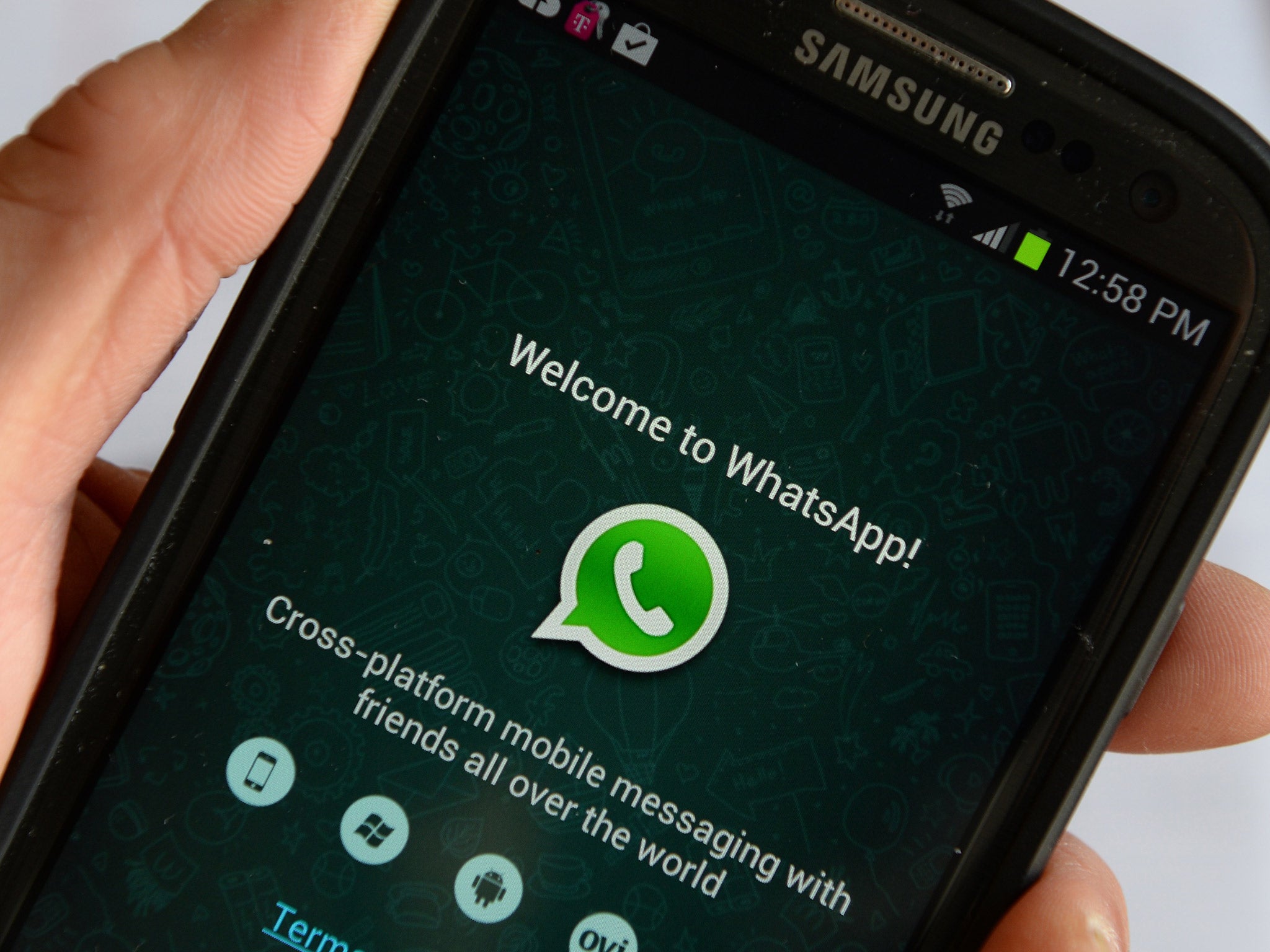WhatsApp free: Mark Zuckerberg will allow businesses to invade app, organically
WhatsApp will, over the next few weeks, become completely free. The catch is that we'll be able to use WhatsApp to "communicate with businesses or organisations"

Your support helps us to tell the story
From reproductive rights to climate change to Big Tech, The Independent is on the ground when the story is developing. Whether it's investigating the financials of Elon Musk's pro-Trump PAC or producing our latest documentary, 'The A Word', which shines a light on the American women fighting for reproductive rights, we know how important it is to parse out the facts from the messaging.
At such a critical moment in US history, we need reporters on the ground. Your donation allows us to keep sending journalists to speak to both sides of the story.
The Independent is trusted by Americans across the entire political spectrum. And unlike many other quality news outlets, we choose not to lock Americans out of our reporting and analysis with paywalls. We believe quality journalism should be available to everyone, paid for by those who can afford it.
Your support makes all the difference.It's a never-ending game of cat and mouse. Wherever we end up, businesses and advertisers hunt us down. You can imagine sitting at an Everest base camp at the culmination of a Himalayan trek, looking at your phone and seeing a jovial message informing you of some really great takeaways in your area.
With nearly a billion users and not an advert to be seen, WhatsApp represented something of a refuge from sales pitches; the service generated income by introducing a 69p subscription charge to users who joined the service after 2012 (though it's still free for the first year). But now, in a supposedly magnanimous announcement, that charge has been waived. WhatsApp will, over the next few weeks, become completely free. The catch – which, of course, is presented to us as an exciting opportunity – is that we'll be able to use WhatsApp to "communicate with businesses or organisations". There's no escape. Where we go, they follow.
Many will have considered the small sum of money they pay WhatsApp to be an insurance policy against this kind of thing; – after all, the ethos of the service was always "no ads, no games, no gimmicks" – but despite denials, that ethos may have changed slightly since Facebook acquired it in February 2014. WhatsApp's founder, Jan Koum, is at pains to point out that there will continue to be no advertising – but the money has to come from somewhere; if we're not paying to use the service, businesses will be paying to access us. It's been said so many times: if you're not paying for a product, you are the product.
You can see why businesses want to get their teeth into instant messaging. Unlike email, we tend to look at messages straight away and respond swiftly. We trust them more and engage with them more readily. It seems unlikely that these statistics will remain quite as buoyant when airlines or banks start trying to be our new best buddies, but they're going to give it a go anyway.
In China, the popular messaging service WeChat already has "official accounts" that allow users to hail taxis, book appointments and transfer money; in return, those companies are allowed to push out between one and four messages a month, depending on the amount they're paying. If you contact those businesses via instant message, they are obliged to respond within 48 hours.
While WhatsApp's plans aren't yet clear ("we haven't written a single line of code yet"), this is evidently the kind of "organic interaction" that Mark Zuckerberg is keen on. In December, Facebook Messenger announced a US partnership with Uber where you could summon a car via instant message; it was described as "the first step on the journey of reinventing how we communicate with businesses". While instant messaging could end up improving customer service, what if we don't want to make that particular journey?
We know that it costs money to provide online services, so how much do you want from us? $0.99 a year clearly isn't enough, so how much for a platform free from corporate messages? Maybe a fiver a year? A tenner? On 18 June 2012, Koum posted a blog entry that read: "When people ask us why we charge for WhatsApp, we say 'Have you considered the alternative?'" Well, we're about to see the alternative. And if we don't like it, we could abandon WhatsApp for something else... but marketing departments will find us eventually. They always do.
Join our commenting forum
Join thought-provoking conversations, follow other Independent readers and see their replies
Comments